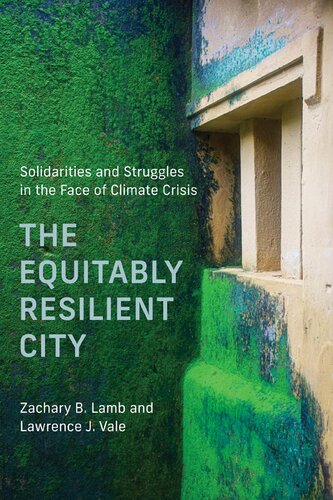The Equitably Resilient City: Solidarities and Struggles in the Face of Climate Crisis By Zachary B. Lamb & Lawrence J. Vale

Author(s): Zachary B. Lamb, Lawrence J. Vale
Series: Urban and Industrial Environments
Publisher: The MIT Press
Year: 2024
Language: English
Pages: 481
ISBN: 0262549867, 9780262549868
Size: 60 MB
Extension: pdf
Twelve worldwide planning and urban design interventions—and their implications for equity-centered urban resilience in the face of climate change.
Landslides threaten South America’s hillside favelas. Flood-prone mobile home parks along the American Gulf Coast. Canal-side villages in Southeast Asia’s megacities are suffering evictions. Too often, the areas most vulnerable to climate change are those populated by people with the fewest economic and political resources. While some leaders are beginning to take measures to lessen climate threats, many early adaption initiatives have exacerbated preexisting disparities. Zachary Lamb and Lawrence Vale’s The Equitably Resilient City explores how cities may adapt to climate change and other risks while simultaneously doing right by disadvantaged populations.
Lamb and Vale’s approach for an equitably resilient city is divided into four fundamental domains: (1) environmental safety and vitality; (2) displacement security; (3) stable and dignified livelihoods; and (4) enhanced self-governance. These concepts encompass the four LEGS (Livelihoods, Environment, Governance, and Security) of equitable resilience. To demonstrate these key principles, the book uses 12 case studies from settlements confronting a variety of risks in the Global North and South, including heat stress in Paris, drought in Bolivia, and floods in Bangkok and New Orleans. Lamb and Vale demonstrate, via actual measures such as planning, community action, and design interventions, that equitable urban resilience is not a pipe dream or an abstract ethical concept, but rather an achievable reality based on struggle and solidarity.
